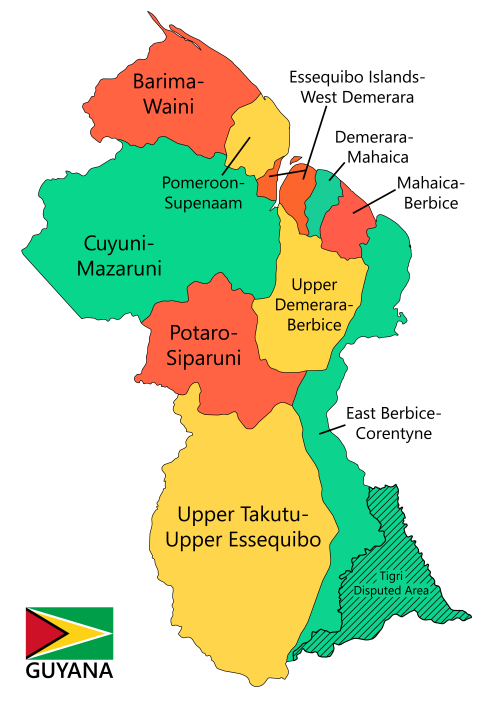 Georgetown Guyana:--- On September 1, 2025, Guyana held pivotal elections to determine its next president and members of parliament, with the stakes higher than ever due to the country’s booming oil economy and ongoing border tensions with Venezuela. Over 750,000 registered voters were expected to cast their ballots at approximately 2,800 polling stations, with results anticipated later in the week.
Georgetown Guyana:--- On September 1, 2025, Guyana held pivotal elections to determine its next president and members of parliament, with the stakes higher than ever due to the country’s booming oil economy and ongoing border tensions with Venezuela. Over 750,000 registered voters were expected to cast their ballots at approximately 2,800 polling stations, with results anticipated later in the week.
A Three-Way Race
The election has drawn significant attention as six parties vie for control of the presidency and the 65-member parliament. However, the contest is primarily a three-way race between incumbent President Irfaan Ali of the People’s Progressive Party (PPP), Aubrey Norton of the People’s National Congress Reform (PNCR), and billionaire Azruddin Mohamed, who recently founded the We Invest in Nationhood party to challenge the traditional two-party system.
Historically, voting in Guyana has followed ethnic lines, with Indo-Guyanese voters favoring the PPP and Afro-Guyanese voters supporting the PNCR. Mohamed, however, has sought to disrupt this dynamic, appealing to younger voters despite facing U.S. sanctions over allegations of corruption, which he denies.
The Oil Boom and Economic Growth
Guyana’s oil boom has transformed the nation into one of the world’s fastest-growing economies since production began in 2019. The state budget has quadrupled to $6.7 billion in 2025, fueled by revenues from oil sales and royalties from contracts with ExxonMobil and other international firms. President Ali has campaigned on using these funds to invest in infrastructure and further economic development.
However, opposition parties have criticized the current administration, alleging that oil revenues disproportionately benefit well-connected groups. Several opposition leaders have pledged to renegotiate the country’s contracts with ExxonMobil to ensure a fairer distribution of wealth.
Border Disputes with Venezuela
Beyond economic challenges, the next administration will face a critical border dispute with Venezuela over the Essequibo region, which contains the majority of Guyana’s oil reserves. Venezuela has long claimed the region, even electing a governor for the area earlier this year, despite having no authority there. The dispute adds a layer of geopolitical complexity to the election, as the new government will need to navigate these tensions carefully.
Election Oversight and Historical Context
Guyana’s 2020 election was marred by a five-month standoff over vote counting, raising concerns about electoral transparency. To ensure a fair process this time, international observers from organizations such as The Carter Center, the Organization of American States, and CARICOM are monitoring the election.
As Guyana stands at a crossroads, the outcome of this election will shape the nation’s trajectory, determining how it manages its newfound oil wealth and addresses its geopolitical challenges.